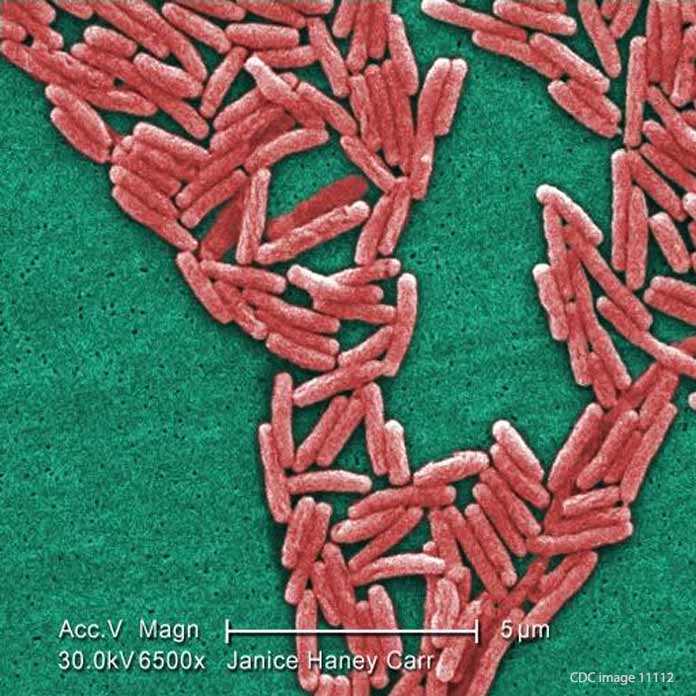News sources in Pittsburgh, PA last week announced that the Legionella bacteria responsible for Legionnaires’ Disease has been identified in two sinks in separate staff areas of the H.J. Heinz Veterans Affairs (VA) hospital campus in O’Hara, PA. This came one week after VA employees isolated the identical Legionella bacteria in a single patient shower, a public sink, and a staff sink at another VA hospital in nearby Oakland, PA, during an investigation of why a patient there was diagnosed with a new case of potentially fatal Legionellosis, also referred to as Legionella pneumonia, in late September.

The VA Pittsburgh has upped both its water quality monitoring activities and its public disclosure accountability since 2014, when it came under Congressional scrutiny for its mishandling of a 21-month Legionnaires’ outbreak, between February 2011 and November 2012, where 16 patients were sickened and at least 6 died from the severe pneumonia triggered by Legionella bacteria in the plumbing systems at these two Pittsburgh-area VA hospital facilities.
It’s a sad irony that, 39 years after the first recognized outbreak of Legionnaire’s Disease, this potentially fatal but preventable disease is still frequently a threat to United States military veterans. Legionnaire’s Disease was first identified in 1976, when 182 people attending an American Legion convention in Philadelphia were sickened by the Legionella bacteria. Of these cases, 29 victims died.
Timeline of Recent Legionnaire’s Disease cases at VA Centers
Since 2011, the Legionella bacteria has been detected at multiple VA facilities. Cases include:
- The two aforementioned outbreaks at two VA Pittsburgh hospitals (2011 to 2012);
- A Legionella contamination at Brockton, MA’s VA hospital that sickened at least 1 outpatient veteran (October 2014); and
- This year’s serious LD outbreak at a VA home in Quincy Illinois, now under investigation by our law firm, that sickened 54 patients and VA employees, killing 12 residents and 1 non-resident as of September 17, 2015.
The recent Quincy, IL outbreak, which made 15% of the resident population ill, occurred on a 129-year-old residential campus, where many of the 48 buildings still possess antiquated plumbing systems. In a statement to the ABC7-1 Team, Illinois Veterans’ Affairs Director Erica Jeffries explained that “What we did discover was that we need to have an increased amount of treatment in our water. Um, we did not have, um, we were not aware of the level of vulnerability.”